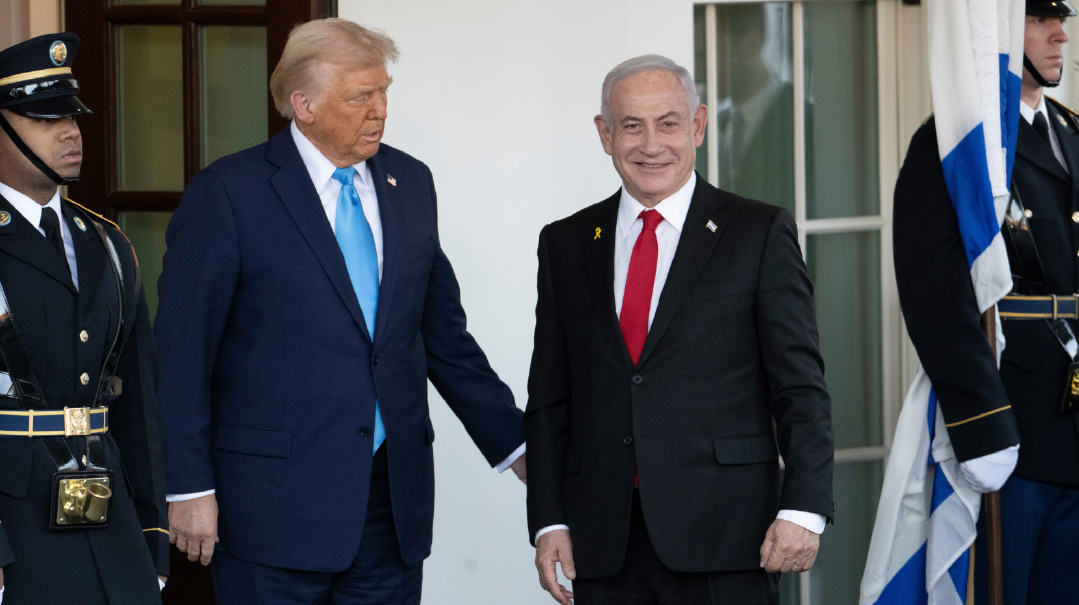Hot Air in the Arava


When news broke Sunday that Jordan might take back land granted to Israel in the 1994 peace treaty between the two countries, the prospect of renewed strategic tensions with a valued neighbor surfaced, yet one more challenge in an increasingly tangled Middle East.
But according to Oded Eran, a former Israeli ambassador to Jordan, Amman’s move likely has more to do with local politics than geopolitics.
In a conference call with journalists, Eran pointed to three reasons Jordan may have decided to cancel an annex to the treaty, which allowed Israel to use land that is technically on the Jordanian side of the border. Under the peace deal, Jordan and Israel both maintain the right to review the land-use agreement every 25 years. The one-year deadline for that period was coming up on October 25. The areas in question — Naharayim, near the Sea of Galilee, and Tzofar, in the southern Arava desert — total about 1,000 acres and are worked by dozens of Israeli farmers.
Treaties Meant to Be Broken
Eran said Amman’s first consideration is one that has been festering ever since Jordan signed its treaty with Israel 24 years ago. Jordan is 60% Palestinian and there was, and remains, considerable domestic opposition to a peace pact with the Jewish state. Now that an actionable deadline to that treaty is approaching, calls for cancelation of the treaty have become louder.
Appease Hardliners
The second consideration is pure politics. According to Eran, Jordan is under considerable pressure from the International Monetary Fund (IMF) to cancel certain government subsidies. But Jordan finds itself in a tough position economically. In addition to being a landlocked Middle Eastern state without significant oil reserves, Jordan has taken in 1.5 million Syrian refugees since the civil war began, a burden that has stretched its resources. Parliament is opposed to the IMF’s demands, so throwing a bone to the opposition in the form of a canceled annex to a peace treaty with Israel may be one way to appease hardliners while deflecting public attention away from a true economic crisis.
When in the Souk…
Third, Jordan just may be creating a better negotiating position for other deals involving Israel. In particular the so-called Red Sea to Dead Sea project that would pump 200 million cubic meters of water per year from the Gulf of Aqaba. The $10 billion project, which would be built entirely in Jordanian territory, would raise the level of the Dead Sea while providing drinking water and electricity to the Jordanians, Israelis, and Palestinians. Israel — and many experts — have been skeptical of the plan, for both environmental and fiscal reasons. Some doubt whether introducing water to the Dead Sea would indeed improve the situation there. And Israeli officials have wondered aloud why they should pay for a plan that primarily benefits Jordan.
“While it’s true that adding water to the Dead Sea is important,” said Eran, today a senior researcher at the Institute for National Strategic Studies in Tel Aviv, “there are other ways of doing this. For example, extending a pipeline from Mediterranean. The Kingdom of Jordan may think that during negotiations it can put pressure on Israel to agree to the Red Sea to Dead Sea project.”
Whatever the reasons, Eran isn’t concerned that Sunday’s announcement means the end of a steady peace along Israel’s eastern border. Jordan depends too much on Israel to take such a drastic step. Israel already supplies Jordan with much of its drinking water and will begin to receive natural gas from Israeli fields in 2019. There is also significant security cooperation, though much of it is behind the scenes.
Prime Minister Binyamin Netanyahu has already signaled that he intends to negotiate with the Jordanians over the use of Naharayim and Tzofar and Eran hinted that the negotiation may end amicably.
“I think that since the territories are not that important to either side,” Eran said, “and since there are many families, that will be affected, maybe there is room to continue the arrangement.”
(Originally featured in Mishpacha, Issue 732)
Oops! We could not locate your form.













